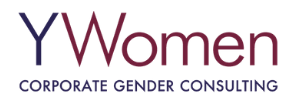Flash Point: The Effect Of The #MeToo Momentum
The three things best-in-class companies are doing to advance women and what that means in the fight against sexual harassment.
Earlier this year, I wrote about Women at the Tipping Point. More than 500,000 women had just marched on Washington, demanding that their voices be heard. Over the past year, I have spoken at or attended more than 30 women’s leadership events. This includes speaking to 12,000 attendees at the Massachusetts Conference for Women, 8,000 at the Texas Conference for Women, 22,000 global associates at Bristol-Myers Squibb and dozens of other events, including Women of the Vine & Spirits, Mercedes-Benz, Women in Automotive, the Cincinnati Chamber of Commerce, Nestlé Purina and more. Yes, women’s voices were rising in 2017. And then in early October, we experienced the flash point: sexual harassment and #MeToo.
Just as the Weinstein scandal broke, Gretchen Carlson released her book, “Be Fierce: Stop Harassment and Take Your Power Back,” and the #MeToo movement reemerged and exploded on social media. These latest developments have permeated all the conversations we’re having around women’s leadership advancement strategy in corporate America. What I am most moved by is that best-in-class companies are not sweeping this conversation under the rug or running in fear, but instead they are talking about these issues. They also are consistently doing three things that position them well not only to advance women but to identify and put a stop to a culture within their organizations that would tolerate the sexual harassment of women. Promoting a culture that is committed to advancing women to senior leadership positions goes hand-in-hand with reducing the instances of abuse within an organization.
What I’ve learned this year from best-in-class companies that are making a real impact can be summed up as follows:
1) They treat their women’s leadership initiative as a change initiative rather than a program or policy change.
- This means total enterprise engagement. Women’s leadership advancement is owned by operations, sales and marketing, with HR playing a critical support role with the necessary progressive policies and programs.
- As with any change initiative, rigorous work is done to identify choke points and barriers. One company identified 13 basic root causes that were holding women back, and they are now working to solve each of those issues.
- In terms of stopping sexual harassment or transforming a hostile work environment, much more than a written policy spelling out what not to do exists. Again, the total enterprise owns the change and barriers are actively identified, rooted out and torn down. HR acts as a partner to women who complain instead of an adversary.
- They are putting their money where their mouths are. Progressive companies today are investing hundreds of thousands of dollars in training, development and driving significant change. If your company is not spending more than a few thousand dollars on its Employee Resource Group / Business Resource Group, then you have to question if there is a serious commitment to advancing women.
2) They hold people accountable through visible, vocal senior leadership and true measures, metrics and scorecards for advancing women.
- Senior leaders are out in front, leading the initiative. They are talking about it, and more importantly, they are holding people accountable for success. In most cases, measures, metrics and scorecards are in place, and compensation is tied to the active advancement and development of talented women.
- They have a visual and vocal policy of zero tolerance of sexual harassment. It simply is not accepted in the organization, ever. More on this below.
- Senior leaders are asking three simple questions of every direct report:
- What was the turnover rate in your division of women and men, and what are you doing to address it? (Hint, women’s turnover in most companies is higher than men’s).
- What is your plan for next year to recruit, develop and advance women?
- How are you pushing this down into the organization, including middle management?
- Senior leaders are listening and learning how women are having different experiences in the workplace than their male co-workers. They are initiating conversations and insisting that their team treats people respectfully and holds accountable anyone who does not. In addition, they are leading by example and continuing to sponsor, mentor and advocate for women in a highly visible way.
3) They actively engage and create male champions to help drive women’s leadership advancement.
- Great companies realize that men are critical to the success of women’s leadership advancement. Best-in-class companies have increased male engagement from 38 percent to 49 percent, a more than 20 percent increase.
- One company I spoke to invested more than $1 million in training men to become advocates for advancing women.
- Many men want to step up, but they don’t know how to start or what it looks like to actually help and support women. This is where the need for training and development comes in, and best-in-class companies are focusing on actively developing male champions.
- Sexual harassment is not a women’s issue. It’s a men’s issue, and it will take the commitment and engagement of men to really make a difference. Male champions are trained and encouraged to speak up and stand up for women at every level of an organization.
Also, on the issue of sexual harassment: Most men are just fine. Please continue to mentor and sponsor women. Encourage them to post for open jobs. Sexual harassment is a heinous personal crime. In my 35 years in corporate America, I would say 97 men out of 100 act in a professional manner toward women. There are many, many good men out there. Sadly, there are also men who are predators, using their power and voices to create hostile work environments. It is critical for men to call out other men. However, this is not the time to disengage with women, but rather to get involved by listening, learning and being part of the solution.
As 2017 closes out, we are at a unique tipping point in terms of achieving gender equality in the workplace. The time is ripe to begin the sometimes difficult, but productive, conversations at work about advancing women, and we can use the momentum of the current national conversation to address systemic issues that may have been ignored or swept under the rug in the past.
An excellent way to begin these kinds of conversations is by taking a moment to subscribe to my newsletter, Gender Conversation QuickStarters. Every month, we bring you three hot topics accompanied by thoughtful questions to get the conversation started.
 This post is cross-posted on the HuffPost. Image: Bigstock-AndreyPopov
This post is cross-posted on the HuffPost. Image: Bigstock-AndreyPopov
Jeffery Tobias Halter is a corporate gender strategist. The country’s leading expert on engaging men to advance women, Jeffery is the President of YWomen, a strategic consulting company. If you would like to access where your company is, download Jeffery’s 30-point Readiness Assessment. A highly sought-after speaker and thought-leader, Jeffery is a two-time TEDx speaker and frequently talks at industry and corporate events.

